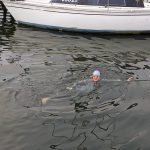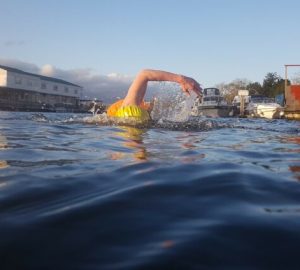Man dies due to inactivity
Firstly, apologies for a slightly misleading title on a serious subject, but there’s a point that will become clear below.
On 27 August this year, as most open water swimmers will already know, Nick Thomas died while attempting to swim across the English Channel. His death was reported on the BBC and in both the national and local press, often under headlines similar to “Man dies swimming the English Channel”. The story was shared widely on Facebook. With so much already said, and having no additional facts than those publicly available, we haven’t reported on it ourselves.
The reason for our headline is to make the point that Nick’s death was unusual and unexpected. In contrast, thousands of people die younger than necessary each year because they are inactive, and these deaths don’t make the evening news because they are so common and unremarkable. Reports vary, but inactivity is estimated to cost you around 4.5 years in lost life expectancy and being physically active is associated with something like a 30% reduction in all-cause mortality.
As swimmers, especially those of us of a similar age to Nick, his death affects us. Many people in the open water community knew Nick, or know someone who knew him. It feels close. By all accounts, Nick was a fit and capable swimmer and was being monitored throughout his swim by an experienced crew and observer. That he still died, despite this, reminds us of our own mortality and frailty. It could have happened to any of us. It makes us think of our own families and loved ones, and whether we want to take the risk of putting them through the same pain that Nick’s family will be suffering now.
Tragically, Nick died as a result of being physically active, something that should have helped him live a longer and healthier life. While couch potatoes may see some justification in this for their own lifestyle choices, the unfortunate truth is that while we can have some influence over our destiny, we cannot control for every eventuality. We’re always playing a game of chance and the best we can do is increase our odds. Nick was unlucky.
Fine, you might say, but why take it to such extremes? Why not just exercise moderately and forget the Everest climbing and English Channel swimming: reap the benefits without the risk?
It’s a good question, and here is my attempt at an answer. I suspect most people who are physically active – especially swimmers – don’t do it to avoid the unpleasant and long-term consequences of not exercising. They do it because they enjoy how it makes them feel now and because of what it enables them to do. The ability to take on big physical challenges is part of the motivation to exercise. If you take that away then, for some people, you take away the incentive to be active.
Sadly, every now and then a swimmer will die. However, on average, I’m sure swimmers live longer, healthier and happier lives than they would do if they couldn’t get in the water. Life is inherently risky but take on the challenges, keep on swimming, and make the most of it.







